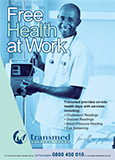Infertility
What is Infertility?
When a couple is unable to conceive after having regular intercourse without any contraception for a period of two years or more, they may be considered infertile.
What causes infertility?
In men, the problem may be due to:
- A low sperm count or poor sperm motility
- Abnormal sperm (in shape and size)
- Blockage in the testes
In women, infertility may be caused by:
- Damaged or blocked fallopian tubes
- Ovulatory disorders such as polycystic ovarian syndrome (inability to produce eggs) and early menopause
- Endometriosis (a condition where the tissue that normally grows inside the uterus (womb) appears in an abnormal location outside the uterus)
- Conditions affecting the uterus, such as fibroids
In some couples, there may be no identified cause which explains their infertility.
What can you do to improve your chances of conceiving?
- Have regular sexual intercourse
It is recommended that you have regular, unprotected sexual intercourse, two to three times a week, to boost your chances of falling pregnant.
- Improve your health, diet and lifestyle (applies to both partners)
- Stop or reduce alcohol intake and smoking.
- Stop any recreational drug use (e.g. Cannabis, cocaine and anabolic steroids).
- Maintain a healthy weight with exercise and healthy eating. A healthy weight is a body mass index (BMI) of between 20 and 25. Women who are overweight and have a BMI of more than 30 are likely to take longer to fall pregnant. Women with a BMI of less than 19 and who have an irregular menstruation cycle should increase their weight, as this is likely to improve your chances of falling pregnant. Women should also take folic acid supplements daily when trying to conceive as this reduces congenital abnormalities of the baby.
- Men should avoid wearing tight pants and underpants as this may influence the quality of the sperm.
- Your work may also affect your fertility. People who work with X-rays and pesticides could be affected.
- Prior to falling pregnant, your doctor should check whether you are immune to German measles and check your cervical smear for any cancers.
What happens if you have fertility problems?
You and your partner should see a doctor together. The doctor will ask about the duration of the problem, your menstrual, sexual and gynaecological history, and history specifically targeting the fertility issue to determine possible causes of the problem. If problems are identified, the doctor will refer you and your partner for testing after discussion and counselling of both parties.
What tests will be done?
For the male partner:
The doctor will refer you for a sperm analysis to measure the amount and quality of the sperm produced. Your doctor must give you clear instructions on how to prepare for the test and what is expected of you. If the test result is abnormal, your doctor will repeat the test three months later.
For the female partner:
Your doctor will enquire about how frequently you menstruate. If you menstruate regularly, the doctor will advise a blood test for a hormone called progesterone, three weeks after your last menstrual period to determine whether you are ovulating (shedding eggs). Hormones called gonadotropin stimulate the ovaries to produce eggs.
Other tests:
- A thyroid function test should only be done if you have symptoms suggestive of this condition.
- A prolactin (hormone which stimulates milk production) measurement test will be done if you are not ovulating or if you have galactorrhea (breast-producing milk in the absence of a recent pregnancy).
- After your doctor has received your results of the semen and relevant hormone tests, you will be referred for assessment of your fallopian tubes. Prior to this you should be tested for a sexually transmitted disease called chlamydia and, if positive, both you and your partner must be treated as this can cause damage to your fallopian tubes. The test to assess the functioning of your fallopian tubes is called a hysterosalpingogram (HSG) imaging test - it is an X-ray used to examine the cavity of the uterus and fallopian tubes.
- A laparoscopy with dye should be offered instead of HSG in women who have previously had infection in their tubes, endometriosis and ectopic pregnancy. Ectopic pregnancy is a condition in which a fertilised egg settles and grows in another location other than the womb (often the fallopian tube). For a laparoscopy you need to be placed under anaesthetic. The doctor assesses your tubes and female organs through an instrument called a laparoscope. They inject dye from the neck of the uterus and it passes through the tubes so your doctor is able to see whether there are any blockages.
- Another test to view the womb is called a hysteroscopy; this is where a hysteroscope is inserted through the cervix to the inside of the womb to detect growths or adhesions (scarring).
What treatment is available?
For the male partner, treatment includes:
- hormonal treatment
- surgery for unblocking of testes
- sperm recovery and
- in vitro fertilisation (IVF).
For the female partner:
- Women with polycystic ovarian syndrome can receive medical and hormonal treatment to help the body to ovulate. This medication increases your chances of having a multiple pregnancy. Other options of treatment include laparoscopic ovarian drilling (the doctor destroys the extra follicles in the ovaries through a laparoscope, using heat) or assisted reproduction. Surgical methods are less frequently used than before.
- Blocked tubes may be treated with microsurgery by certain specialists, but if severely blocked, assisted reproduction in the form of IVF is an option.
- Infertility caused by endometriosis includes a combination of observation, surgery, use of medication that enhances ovulation combined with intra-uterine insemination, or IVF. Medical treatments for endometriosis e.g. gonadotropin-releasing hormone (GnRH) agonists are of no benefit in improving fertility. The ideal infertility treatment for women with mild to moderate endometriosis is surgical removal (laser burning or cutting) of endometriosis implants. Women found to have severe endometriosis are best treated with IVF.
- If you are not ovulating and there are adhesions (tissues that have joined together) in the uterus, you may be offered surgery through a hysteroscope (visualising scope inside the uterus) to cut away these adhesions.
- If the cause of the infertility is not found, your doctor may offer medical treatment with a drug called clomiphene citrate for induction of ovulation. The other option is assisted reproduction.
What is assisted reproduction?
This is a specialist area which assists you in conceiving without having intercourse. It is important that you are well informed regarding risk, cost and success rate of these procedures prior to attempting these options. This includes various forms such as:
- Intra-uterine (artificial) insemination
- IVF
- Intracytoplasmic sperm injection (an IVF procedure in which a single sperm is injected directly into the egg)
- Gamete intrafallopian transfer (GIFT); a technique in which the male and female cells required to begin reproduction are injected into the fallopian tubes of the female for fertilisation.
References
1. NATIONAL INSTITUTE FOR CLINICAL EXCELLENCE (NICE). Guidelines. February 2004. Assessment and treatment for people with fertility problems. London: Abba Litho Limited.
2. TYGERBERG FERTILITY (AEVITAS CLINIC). Life Vincent Pallotti Hospital. Website: www.aevitas.co.za
 TransmedBanner4.jpg)

